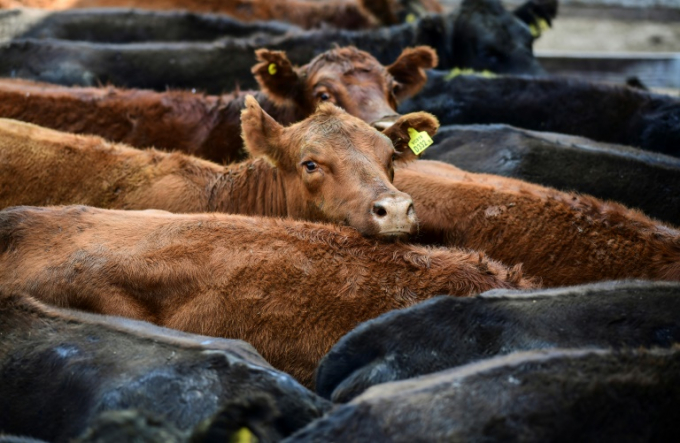November 28, 2025 | 04:20 GMT +7
November 28, 2025 | 04:20 GMT +7
Hotline: 0913.378.918
November 28, 2025 | 04:20 GMT +7
Hotline: 0913.378.918

Argentina is the world's fourth-largest beef exporter, with revenues from the sector vital to the country's economy.
Exports were authorised up to a maximum of 50% of 2020's average monthly volumes, government ministers told reporters in Buenos Aires.
The country is the world's fourth-largest beef exporter as well as one of its biggest consumers per capita, and revenues from the sector are vital to the country's economy.
It exported some 819,000 tonness of beef and cow leather worth $3.37 billion in 2020 -- a 16.5% drop from 2019 -- primarily to China, Germany and Israel, according to the INDEC statistics institute.
"The 50% quota will remain in place until Aug 31 and depending on the results, we will consider how to adapt it," said Minister of Productive Development Matias Kulfas.
The quota excludes exports under an agreement with the European Union on hormone-free beef.
The government is also prohibiting the export of seven beef cuts popular with domestic consumers, including the family staple "asado," until Dec 31.
"The absolute priority is that there is no shortage of meat on the Argentinian table. We think this will help to stabilize prices," Kulfas said of the measures.
In mid-May, President Alberto Fernandez's government announced a one-month suspension on foreign meat sales to "get the sector in order, restrict speculative practices and avoid tax evasion in foreign trade."
Poverty affects 42% of Argentines, and Fernandez sought to reduce the cost of living by implementing price controls.
Fernandez insisted Argentina could not accept the recent rise in meat prices in a country already reeling from three years of recession and the adverse economic impact of the coronavirus pandemic.
The price rises contributed to Argentine inflation, already among the highest in the world, reaching 17.6% in the first quarter of 2021, according to INDEC.
Cattle farmers announced a two-week halt on domestic beef sales in response to the government's move.
The protest did not harm domestic availability, with butcheries and markets having stocked up and consumption dropping due to a sharp price increase -- some 76.2% year-on-year in May.
According to Argentina's chamber of industry and commerce, the industry employs some 100,000 people.
Meat consumption in Argentina has been declining year after year, from 69.3 kilogrammes per person in 2009 to 49.2 kilogrammes today, according to the CICCRA industry chamber.
(AFP)

(VAN) A new study reveals how the simultaneous effects of ocean acidification, salinity and loss of oxygen are making the world more fragile.

(VAN) Hopes are growing that the creation of the first 3D turkey gut model could be a turning point in the battle against the virulent blackhead disease.

(VAN) Tyson, America’s biggest meat supplier, plans to shutter one of its largest beef processing plants as the industry continues to struggle with low cattle supplies and political pressure from Washington.

(VAN) New FAO study shows how digital solutions are empowering farmers and fishers to prevent losses and build resilient agrifood systems.

(VAN) Brazil's COP30 presidency pushed through a compromise climate deal on Saturday that would boost finance for poor nations coping with global warming but that omitted any mention of the fossil fuels driving it.

(VAN) Poultry farmers in the UK have been warned that they could face one of the worst winters yet for bird flu.

(VAN) Prices of main-crop paddy have risen sharply, with jasmine rice hitting 16,100 baht per tonne — the highest level in years.